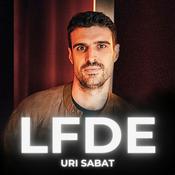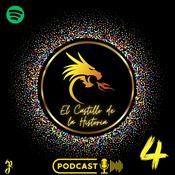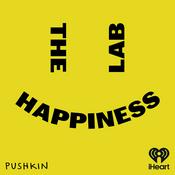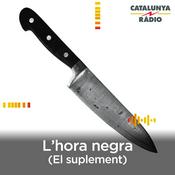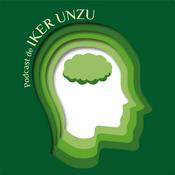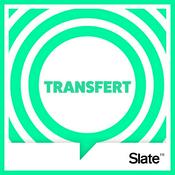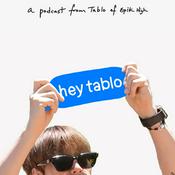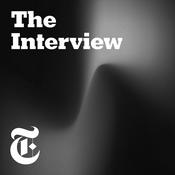76 episodios
- Plus: The Pentagon Accelerates AI and GPT-5.2 solves open mathematics problems..
Welcome to the AI Safety Newsletter by the Center for AI Safety. We discuss developments in AI and AI safety. No technical background required.
In this edition, we discuss the AI agent social network Moltbook, Pentagon's new “AI-First” strategy, and recent math breakthroughs powered by LLMs.
Listen to the AI Safety Newsletter for free on Spotify or Apple Podcasts.
We’re Hiring. We’re hiring an editor! Help us surface the most compelling stories in AI safety and shape how the world understands this fast-moving field.
Other opportunities at CAIS include: Research Engineer, Research Scientist, Director of Development, Special Projects Associate, and Special Projects Manager. If you’re interested in working on reducing AI risk alongside a talented, mission-driven team, consider applying!
Moltbook Sparks Safety Concerns
Screencapture from Moltbook's home page. Source. Moltbook is a new social network for AI agents. From nearly the moment it went live, human observers have noted numerous troubling patterns in what's being posted.
How Moltbook works. Moltbook is a Reddit-style social network built on a framework that lets personal AI assistants run locally and accept tasks via messaging platforms. Agents check Moltbook regularly (i.e., every [...]
---
Outline:
(01:04) Moltbook Sparks Safety Concerns
(05:10) Pentagon Mandates AI-First Strategy
(07:59) AI Solves Open Math Problems
(10:41) In Other News
(10:45) Government
(11:31) Industry
(13:06) Civil Society
(14:52) Discussion about this post
(14:56) Ready for more?
---
First published:
February 2nd, 2026
Source:
https://newsletter.safe.ai/p/ai-safety-newsletter-68-moltbook
---
Want more? Check out our ML Safety Newsletter for technical safety research.
Narrated by TYPE III AUDIO.
---
Images from the article:
Apple Podcasts and Spotify do not show images in the episode description. Try Pocket Casts, or another podcast app. AISN #67: Trump’s preemption order, H200s go to China, and new frontier AI from OpenAI and DeepSeek
17/12/2025 | 11 minWelcome to the AI Safety Newsletter by the Center for AI Safety. We discuss developments in AI and AI safety. No technical background required..
Welcome to the AI Safety Newsletter by the Center for AI Safety. We discuss developments in AI and AI safety. No technical background required.
In this edition we discuss President Trump's executive order targeting state AI laws, Nvidia's approval to sell China high-end accelerators, and new frontier models from OpenAI and DeepSeek.
Listen to the AI Safety Newsletter for free on Spotify or Apple Podcasts.
Executive Order Blocks State AI Laws
U.S. President Donald Trump issued an executive order aimed at halting state efforts to regulate AI. The order, which differs from a version leaked last month, leverages federal funding and enforcement to evaluate, challenge, and limit state laws. The order caps off a year in which several ambitious state AI proposals were either watered down or vetoed outright.
A push for regulatory uniformity. The order aims to reduce regulatory friction for companies by eliminating the variety of state-level regimes and limit the power of states at impacting commerce beyond their own borders. It calls for replacing them with a single, unspecified, federal framework.
[...]
---
Outline:
(00:34) Executive Order Blocks State AI Laws
(03:42) US Permits Nvidia to Sell H200s to China
(06:00) ChatGPT-5.2 and DeepSeek-v3.2 Arrive
(08:23) In Other News
(08:27) Industry
(09:13) Civil Society
(09:58) Government
(11:07) Discussion about this post
(11:11) Ready for more?
---
First published:
December 17th, 2025
Source:
https://newsletter.safe.ai/p/ai-safety-newsletter-67-trumps-preemption
---
Want more? Check out our ML Safety Newsletter for technical safety research.
Narrated by TYPE III AUDIO.
---
Images from the article:
Apple Podcasts and Spotify do not show images in the episode description. Try Pocket Casts, or another podcast app.AISN #67: Trump’s preemption order, H200s go to China, and new frontier AI from OpenAI and DeepSeek
17/12/2025 | 12 minWelcome to the AI Safety Newsletter by the Center for AI Safety. We discuss developments in AI and AI safety. No technical background required..
Welcome to the AI Safety Newsletter by the Center for AI Safety. We discuss developments in AI and AI safety. No technical background required.
In this edition we discuss President Trump's executive order targeting state AI laws, Nvidia's approval to sell China high-end accelerators, and new frontier models from OpenAI and DeepSeek.
Listen to the AI Safety Newsletter for free on Spotify or Apple Podcasts.
Executive Order Blocks State AI Laws
U.S. President Donald Trump issued an executive order aimed at halting state efforts to regulate AI. The order, which differs from a version leaked last month, leverages federal funding and enforcement to evaluate, challenge, and limit state laws. The order caps off a year in which several ambitious state AI proposals were either watered down or vetoed outright.
A push for regulatory uniformity. The order aims to reduce regulatory friction for companies by eliminating the variety of state-level regimes and limit the power of states at impacting commerce beyond their own borders. It calls for replacing them with a single, unspecified, federal framework.
[...]
---
Outline:
(00:34) Executive Order Blocks State AI Laws
(03:53) US Permits Nvidia to Sell H200s to China
(06:11) ChatGPT-5.2 and DeepSeek-v3.2 Arrive
(08:52) In Other News
(08:55) Industry
(09:42) Civil Society
(10:26) Government
(11:35) Discussion about this post
(11:39) Ready for more?
---
First published:
December 17th, 2025
Source:
https://newsletter.safe.ai/p/ai-safety-newsletter-67-trumps-preemption
---
Want more? Check out our ML Safety Newsletter for technical safety research.
Narrated by TYPE III AUDIO.
---
Images from the article:
Apple Podcasts and Spotify do not show images in the episode description. Try Pocket Casts, or another podcast app.AISN #66: AISN #66: Evaluating Frontier Models, New Gemini and Claude, Preemption is Back
02/12/2025 | 12 minWelcome to the AI Safety Newsletter by the Center for AI Safety. We discuss developments in AI and AI safety. No technical background required..
Welcome to the AI Safety Newsletter by the Center for AI Safety. We discuss developments in AI and AI safety. No technical background required.
In this edition we discuss the new AI Dashboard, recent frontier models from Google and Anthropic, and a revived push to preempt state AI regulations.
Listen to the AI Safety Newsletter for free on Spotify or Apple Podcasts.
CAIS Releases the AI Dashboard for Frontier Performance
CAIS launched its AI Dashboard, which evaluates frontier AI systems on capability and safety benchmarks. The dashboard also tracks the industry's overall progression toward broader milestones such as AGI, automation of remote labor, and full self-driving.
How the dashboard works. The AI Dashboard features three leaderboards—one for text, one for vision, and one for risks—where frontier models are ranked according to their average score across a battery of benchmarks. Because CAIS evaluates models directly across a wide range of tasks, the dashboard provides apples-to-apples comparisons of how different frontier models perform on the same set of evaluations and safety-relevant behaviors.
Ranking frontier models for [...]
---
Outline:
(00:33) CAIS Releases the AI Dashboard for Frontier Performance
(04:05) Politicians Revive Push for Moratorium on State AI Laws
(06:39) Gemini 3 Pro and Claude Opus 4.5 Arrive
(09:17) In Other News
(09:20) Government
(10:15) Industry
(11:03) Civil Society
(12:00) Discussion about this post
---
First published:
December 2nd, 2025
Source:
https://newsletter.safe.ai/p/ai-safety-newsletter-66-aisn-66-evaluating
---
Want more? Check out our ML Safety Newsletter for technical safety research.
Narrated by TYPE III AUDIO.
---
Images from the article:
Apple Podcasts and Spotify do not show images in the episode description. Try Pocket Casts, or another podcast app.- Welcome to the AI Safety Newsletter by the Center for AI Safety. We discuss developments in AI and AI safety. No technical background required.
In this edition: A new benchmark measures AI automation; 50,000 people, including top AI scientists, sign an open letter calling for a superintelligence moratorium.
Listen to the AI Safety Newsletter for free on Spotify or Apple Podcasts.
CAIS and Scale AI release Remote Labor Index
The Center for AI Safety (CAIS) and Scale AI have released the Remote Labor Index (RLI), which tests whether AIs can automate a wide array of real computer work projects. RLI is intended to inform policy, AI research, and businesses about the effects of automation as AI continues to advance.
RLI is the first benchmark of its kind. Previous AI benchmarks measure AIs on their intelligence and their abilities on isolated and specialized tasks, such as basic web browsing or coding. While these benchmarks measure useful capabilities, they don’t measure how AIs can affect the economy. RLI is the first benchmark to collect computer-based work projects from the real economy, containing work from many different professions, such as architecture, product design, video game development, and design.
Examples of RLI Projects Current [...]
---
Outline:
(00:29) CAIS and Scale AI release Remote Labor Index
(02:04) Bipartisan Coalition for Superintelligence Moratorium
(04:18) In Other News
(05:56) Discussion about this post
---
First published:
October 29th, 2025
Source:
https://newsletter.safe.ai/p/ai-safety-newsletter-65-measuring
---
Want more? Check out our ML Safety Newsletter for technical safety research.
Narrated by TYPE III AUDIO.
---
Images from the article:
Apple Podcasts and Spotify do not show images in the episode description. Try Pocket Casts, or another podcast app.
Más podcasts de Cultura y sociedad
Podcasts a la moda de Cultura y sociedad
Acerca de AI Safety Newsletter
Narrations of the AI Safety Newsletter by the Center for AI Safety. We discuss developments in AI and AI safety. No technical background required.
This podcast also contains narrations of some of our publications.
ABOUT US
The Center for AI Safety (CAIS) is a San Francisco-based research and field-building nonprofit. We believe that artificial intelligence has the potential to profoundly benefit the world, provided that we can develop and use it safely. However, in contrast to the dramatic progress in AI, many basic problems in AI safety have yet to be solved. Our mission is to reduce societal-scale risks associated with AI by conducting safety research, building the field of AI safety researchers, and advocating for safety standards.
Learn more at https://safe.ai
Sitio web del podcastEscucha AI Safety Newsletter, El Faro y muchos más podcasts de todo el mundo con la aplicación de radio.es
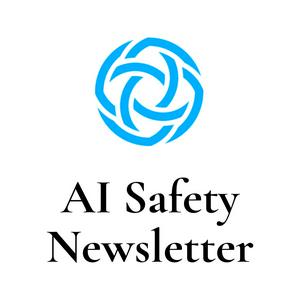
Descarga la app gratuita: radio.es
- Añadir radios y podcasts a favoritos
- Transmisión por Wi-Fi y Bluetooth
- Carplay & Android Auto compatible
- Muchas otras funciones de la app
Descarga la app gratuita: radio.es
- Añadir radios y podcasts a favoritos
- Transmisión por Wi-Fi y Bluetooth
- Carplay & Android Auto compatible
- Muchas otras funciones de la app


AI Safety Newsletter
Escanea el código,
Descarga la app,
Escucha.
Descarga la app,
Escucha.


